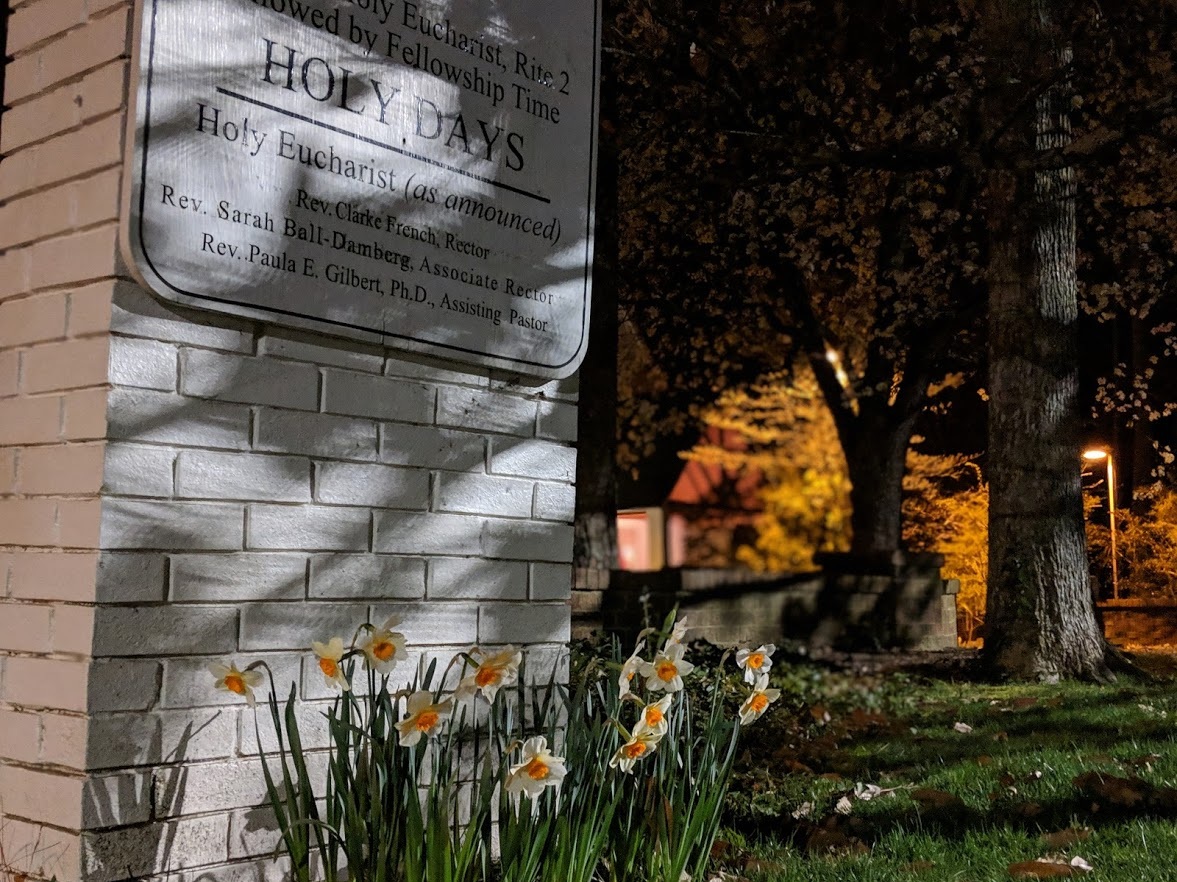Lenten Practice: Don’t Go it Alone
As Lent began this week, many of us adopted a special observance for the season. Some of us made a commitment to a traditional practice such as a renewed or deepened commitment to prayer, fasting, penitence, study or almsgiving. Some of us adopted a non-traditional practice that we discerned might help us grow in our relationship with God and our neighbor. But as we began this period of “turning back,” my rector conveyed an important message – whatever we do during Lent, we shouldn’t go it alone.
We gathered together this week for Ash Wednesday services at my home church in Chapel Hill.
He explained that it is a mistake to think we should each scuttle off to our own corner and diligently practice our spiritual disciplines in isolation. The whole point of church is to come together in community to support, challenge, teach and encourage one another. My rector and I had been discussing this topic in the month leading up to Lent, and last Sunday he invited me to discuss my experience with the congregation. During the Adult Forum that week, I shared a personal example – I told the group that I often feel lonely in my Sabbath practice. Yet some simple encouragement I received from a friend at church recently helped me deepen my commitment to my Sabbath observance (more on that topic coming soon!)
At the end of the Adult Forum session, we put out simple sign-up sheets to help folks “connect the dots” within the congregation. The intention was that we were not asking people sign up for another formal “program” to squeeze into our already busy lives. Rather, we invited people to note down their name on a list if they had interest in a particular topic that they wanted to explore further with others. The topics we listed included prayer, tithing, vocation, Sabbath, dating, marriage, mental health and faith, reconciliation, aging, care giving, death and dying, and Bible study. By inviting people to “sign up,” we thought we might facilitate informal connections. Maybe as a result someone would schedule a coffee date with another person to discuss a shared topic of interest. Or perhaps people would send one another resources via email, or form a small group, or send each other encouraging messages over text or social media. We were trying to facilitate organic connections that might not have occurred otherwise.
I was surprised when the approach had immediate pay-off for me personally. Standing by the sign-up sheets after the session, drinking my cup of coffee, I had a brief chat with a guy about prayer. Later that week, he and I got together for lunch near my office, and he helped me explore how I might adopt a prayer practice that is entirely new for me.
Community and Prayer
For the past eight years or so, I’ve had a daily prayer practice which I described in this blog post. It has been an incredibly rich and transformative practice for me. But for the past several months, I’ve had a sense that I may be being called in a new direction in my prayer life. I’ve considered praying the Daily Office, a practice which is laid out in the Book of Common Prayer. But I’ve felt intimidated. The format seems awfully complicated (lots of flipping of pages between various sections!). I’ve also worried that praying the Daily Office would feel ‘noisy’ – it includes so many words! I have been concerned there wouldn’t be time for silence to listen for God’s voice, which has been so central to my prayer practice for many years.
But my friend from church made a compelling case. He said he loves praying the Daily Office because it is an ancient practice, and he is not doing it alone. On any given morning or evening, thousands (perhaps even hundreds of thousands) of people around the world are praying the exact same words at approximately the same time as him. He may be physically alone in his living room, but he is united with countless people who are part of the mystical body of Christ.
Hm. That sounded pretty good. So, after our discussion over lunch, I decided to commit to the practice of Daily Morning Prayer each day during Lent. So far, I love it. I love the words of the Psalms; in the practice I’ve adopted, we read through entire Psalter every month. I love that I’m discovering there’s lots of time for silence in between the words. I love the General Thanksgiving which is read at the end:
I may be physically alone as a I read the Daily Office, but I am united with countless others around the world.
And, we pray, give us such an awareness of your mercies,
that with truly thankful hearts we may show forth your praise,
not only with our lips, but in our lives.
We live our lives within the context of community. And so it feels right to adopt spiritual disciplines — including prayer, study, fasting, rest and reconciliation — within the context of community.
May you have a blessed Lenten season and may none of us feel like we have to “go it alone.”
————————————————————
I would love to hear about your Lenten practice including if – and how— you’re engaging in your practice within the context of community. Please email me with your thoughts.


